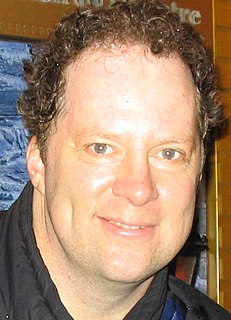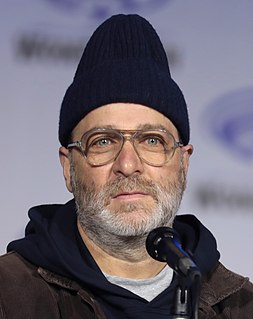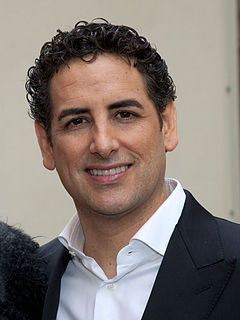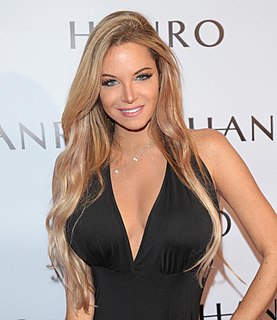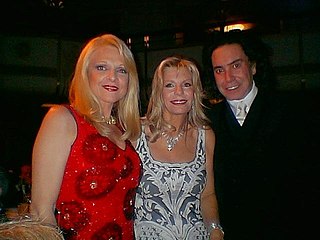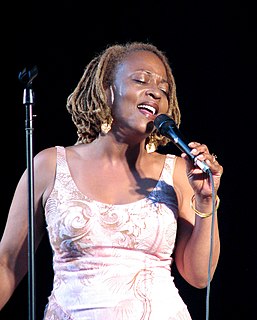A Quote by Dianne Reeves
Early on, I started with classical voice and had that wonderful foundation. For where I wanted to go at that time, there were no teachers to teach it, so I came up with all kinds of different ways to develop the sound of my voice.
Related Quotes
I had a hole in my voice. It's an area in the voice where it's air. It's just - there's no - it's just very airy. And my classical teachers were just so frustrated with me because I would have these deep, low notes that were really strong, and the higher register was strong, but right in that middle area, it was really hard. It was like a passage. And many singers go through this and work it out. But I realized in jazz, I could just take advantage of that and take advantage of having a voice that was very different in different areas.
The expectation is this low, gravelly voice for John, but I went through his early recordings and there were songs in there where the voice was so different, I wasn't even sure if it was him singing, ... So it was interesting to me that we would see him develop the Man in Black sound. I thought it was really important that his voice change as his persona slowly solidified. The music was really the doorway into the character.
I had a hole in my voice. I still do. We call it a hole, but it's an area in the voice where it's air. And my classical teachers were just so frustrated with me because I would have these deep, low notes that were really strong, and the higher register was strong, but right in the middle area, it was really hard.
I had to get the voice back, the precise pitch of Sid's voice and I'd forgotten that I'd pitched him higher than my regular voice, so that was a little difficult to begin with. It was especially hard because we started recording in the morning so I had to warm up a lot and my usual voice is a little more gravelly.
I went to school to learn guitar, solfeggio, and harmony. I wanted to know more about music, how it works. I wanted to take voice lessons, too, and that's when I discovered what I could do with my voice. At the beginning, I thought I would do classical and pop, but then I learned that I really liked the classical music.
There came one and knocked at the door of the Beloved. And a voice answered and said, 'Who is there?' The lover replied, 'It is I.' 'Go hence,' returned the voice; 'there is no room within for thee and me.' Then came the lover a second time and knocked and again the voice demanded, 'Who is there?' He answered, 'It is thou.' 'Enter,' said the voice, 'for I am within.
In the past, I've written my songs and then asked friends if they could record the vocals. I didn't want to use my own voice, because other people have much better voices. I was hearing the music with a voice that I don't have. It was a case of pulling whatever resources I had to get the sound I wanted, but that doesn't take anything away from the authorship. They are songs written by me that sound the way I want them to sound. Whether it's my voice or someone else's doesn't make a difference to the music.
I remember someone once saying, "Pete, you know you really should take voice lessons." And I said, "Well, if I could find any voice teacher that could teach me to sing like Lead Belly I'd spend every cent to study under him." But every time you'd go to a voice teacher, he'd teach you to warble, as if you'd want to be an opera singer, and that's not what I'm interested in.



